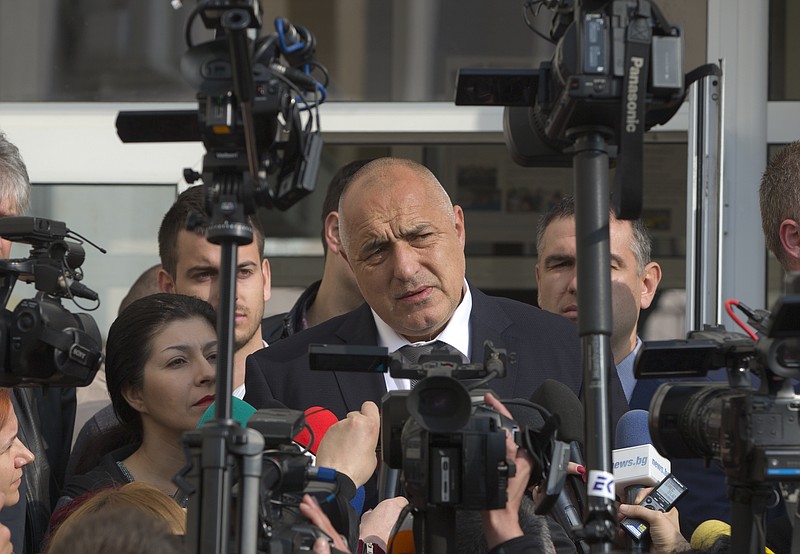SOFIA, Bulgaria (AP) - Bulgarians headed to the polls Sunday for the third time in four years in an early vote that could tilt the European Union's poorest member closer to Russia.
Some 6.8 million Bulgarians are eligible to vote in an election widely predicted to bring about a fragile government coalition and a fragmented legislature where nationalist and populist parties could become kingmakers.
Polls opened at 7 a.m. (0400GMT) and first results from exit polls are expected shortly after they close at 8 p.m. (1700GMT).
The election campaign focused on the future of EU, the influence of Russia and Turkey on domestic politics, as well as problems associated with an increased number of migrants.
Surveys say former Prime Minister Boiko Borisov's center-right GERB party is running neck-and neck with the Socialist Party of ex-communists. Both parties have pledged to improve economic relations with Russia, appealing to voters who feel let down by the EU.
"I voted for a stable, predictable and united Bulgaria, because tomorrow our nation needs to be united," Borisov said after casting his ballot.
The election has sparked protests at the Turkish border for the last two days by Bulgarian nationalists who are determined to keep Bulgarian citizens living permanently in Turkey from coming in to vote.
The border blockade reflects rising tensions between the two countries over Turkey's open backing for a group that represents Bulgaria's sizeable Turkish minority. Some 10 percent of the 7.2 million Bulgarians are of Turkish origin or are Muslims. More than 300,000 have settled permanently in neighboring Turkey, but still hold a Bulgarian passport and are eligible to vote.
The blockade by nationalists could affect some 50,000 voters from Turkey.
The protesters claim Turkish officials are forcing expatriate voters to support DOST, a pro-Ankara party running in the election for the first time that nationalists fear is a threat to Bulgarian interests.
The tense relations have prompted a spat between the two nations' leaders. While Turkish President Recep Tayyip Erdogan criticized what he described as "pressure" on ethnic Turks in Bulgaria, his Bulgarian counterpart, Rumen Radev, said his country would not accept democracy lessons from Turkey.
Borisov, a 57-year-old political maverick who has combined his man-in-the-street rhetoric with a strict obedience to the EU, is a key figure in the election. His party was defeated by Radev, a former air force general, in the November 2016 presidential election.
Borisov resigned after Radev's victory, and his party's popularity faded because of the slow pace of reforms to eliminate graft and poverty and overhaul the judicial system. It is now pledging to fight corruption and to raise minimum wages and supports EU sanctions on Russia over its role in the Ukraine crisis.
Socialist leader Kornelia Ninova wants EU sanctions against Russia lifted, a bigger role for the state in the economy, and has wooed voters with promises of higher salaries and pensions.
A populist party Volya (Will) can enter Parliament if it wins more than the minimum four percent of the vote. It's led by Veselin Mareshki, a wealthy businessman who owns a chain of cut-rate pharmacies and dozens of gas stations. His anti-establishment message combines patriotic rhetoric with promises of strict immigration controls and friendlier relations with Moscow.
